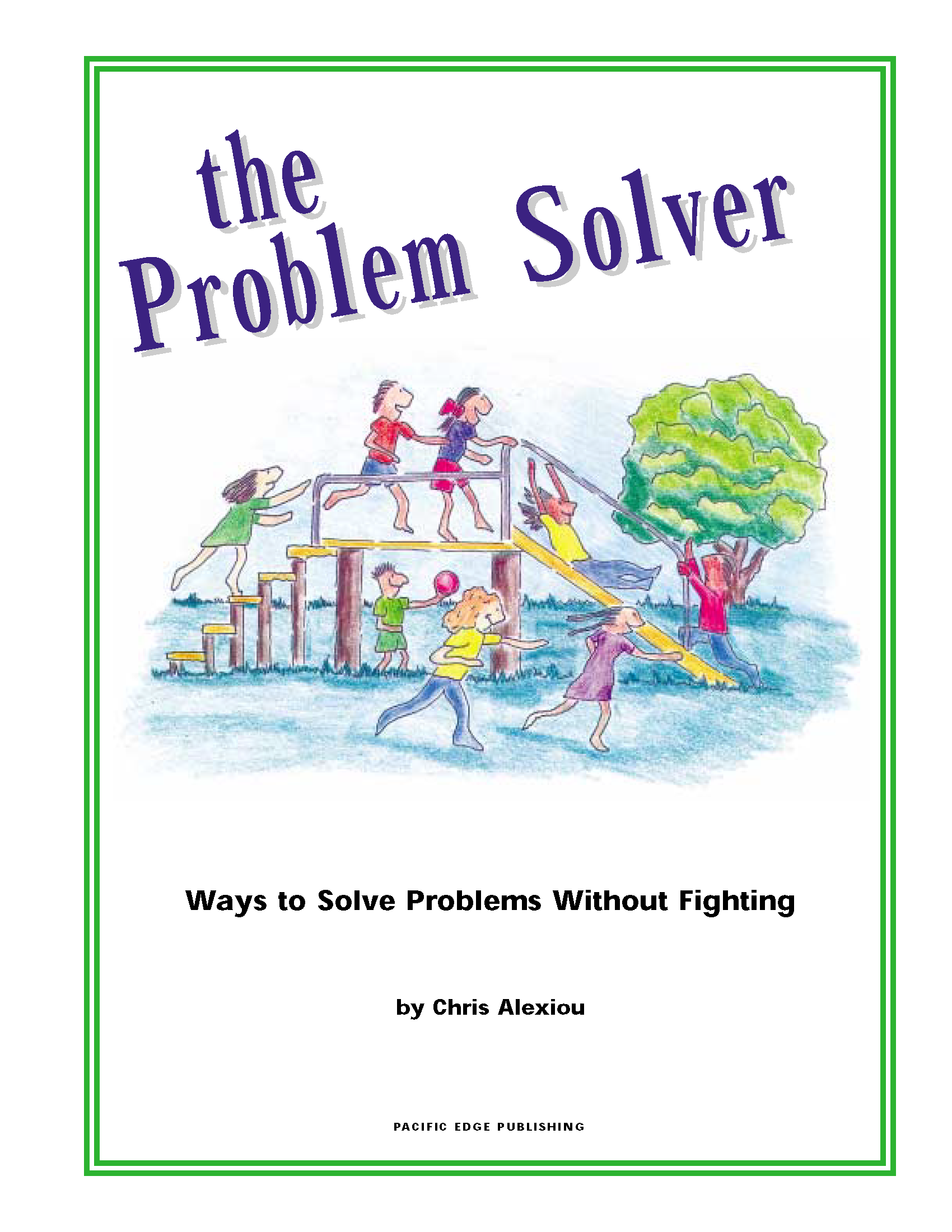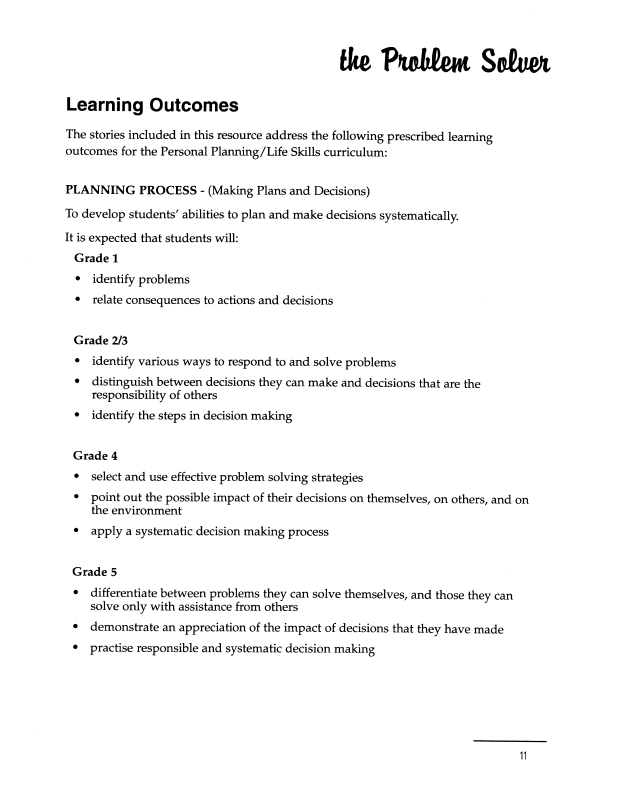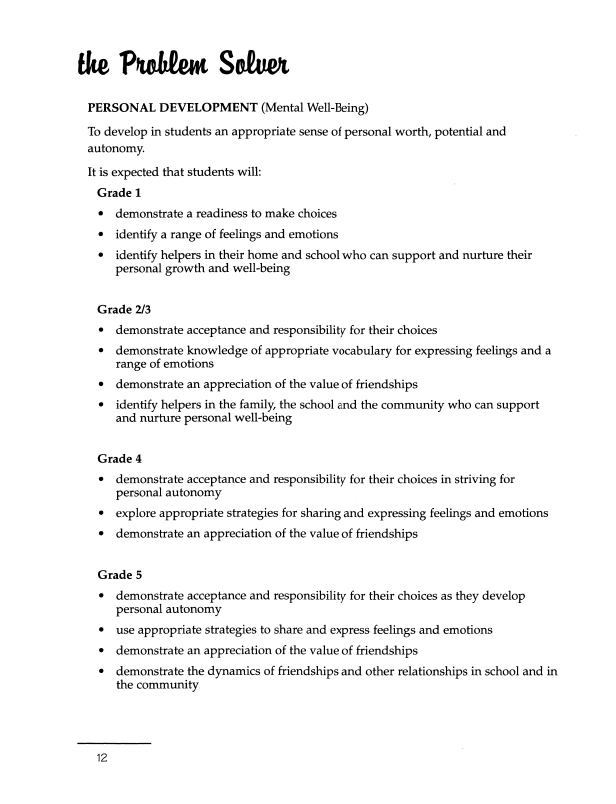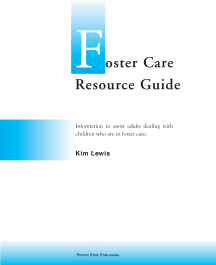Description
Chris Alexiou
Pacific Edge Publishing
66 pp, blackline masters
Level: Grades K-7
Summary
Your role as a teacher offers many opportunities to be involved in discipline/counselling sessions with children. Inappropriate behaviour often leads to a situation that requires the involvement of an adult in order to come to some peaceful resolution. Often children are not adequately equipped with the social skills necessary to solve problems in a peaceful, socially acceptable manner.
A large number of children need to be taught to solve problems peacefully, make appropriate decisions, control their anger and impulsive behaviour and develop empathy for others. The stories and the activities in this resource package address this need.
Ten short stories included in this resource are intended to teach social skills in a fun and familiar way. They are all based on actual events that took place in a classroom or schoolyard. Each plot is a situation that all children will encounter during their elementary school years. Children identify with the situations and enjoy the characters in each story. The plot of each story revolves around a social problem and how the children deal with it. The questions at the end of each story are for the children to consider before they decide on a course of action. Children are asked to solve the problem peacefully and make appropriate decisions about solutions that do not require a violent or hurtful response. They are also asked to identify their feelings and the feelings of others. By identifying feelings, children start to see other perspectives and this leads to development of empathy for others.
By asking questions and offering alternatives through regular class discussion, the children learn to choose solutions that lead to positive outcomes. The consequences of their actions also become evident through discussion of the stories. Children begin to see that appropriate, peaceful actions lead to positive results and that hurtful actions lead to undesirable or even painful endings. Researchers and educators have been concerned in recent years that most of the violent material children view never deals with the reality of the hurt, disappointment and pain caused by acting in a mean-spirited, aggressive manner when solving problem situations. Exploring the possible negative consequences of hurtful behaviour through discussion serves to address that missing element of many programs available through the mass media.
Comment
The social skills addressed in this resource are required learning outcomes included in the curriculum guidelines of the Ontario and British Columbia Ministries of Education, other Canadian provinces and many American State Departments of Education.
As children grow, become more independent and spend more time with their peers and less time being supervised by mom, dad and teachers, they will need to become more effective problem solvers. These skills are not learned easily or quickly. We know that they will learn the appropriate strategies before they actually change their behaviours. This is common with all learners – children and adults. By starting this learning process in the primary grades (K-3), the practise and reinforcement children will receive from an early age will give them the skills to become responsible young adults.
Table of Contents
– Introduction to The Problem Solver
– How to Use the Problem Solver Story Cards
– How to Use the Problem Solver Worksheet
– The Problem Solver Worksheet
– Learning Outcomes
– Extension Activities
– Ways to Solve Problems Without Fighting
The Problem Solver Story Cards
1. Snack Attack
2. First In Line
3. On The Climber
4. Facing Your Fears
5. Wall Ball
6. Getting Carried Away
7. Bossy Bus Monitors
8. Indoor Recess
9. No Bad Words
10. On The Sidelines
Problem Solver Questions
Blackline Masters – Additional Extension Activities
Related Resources







